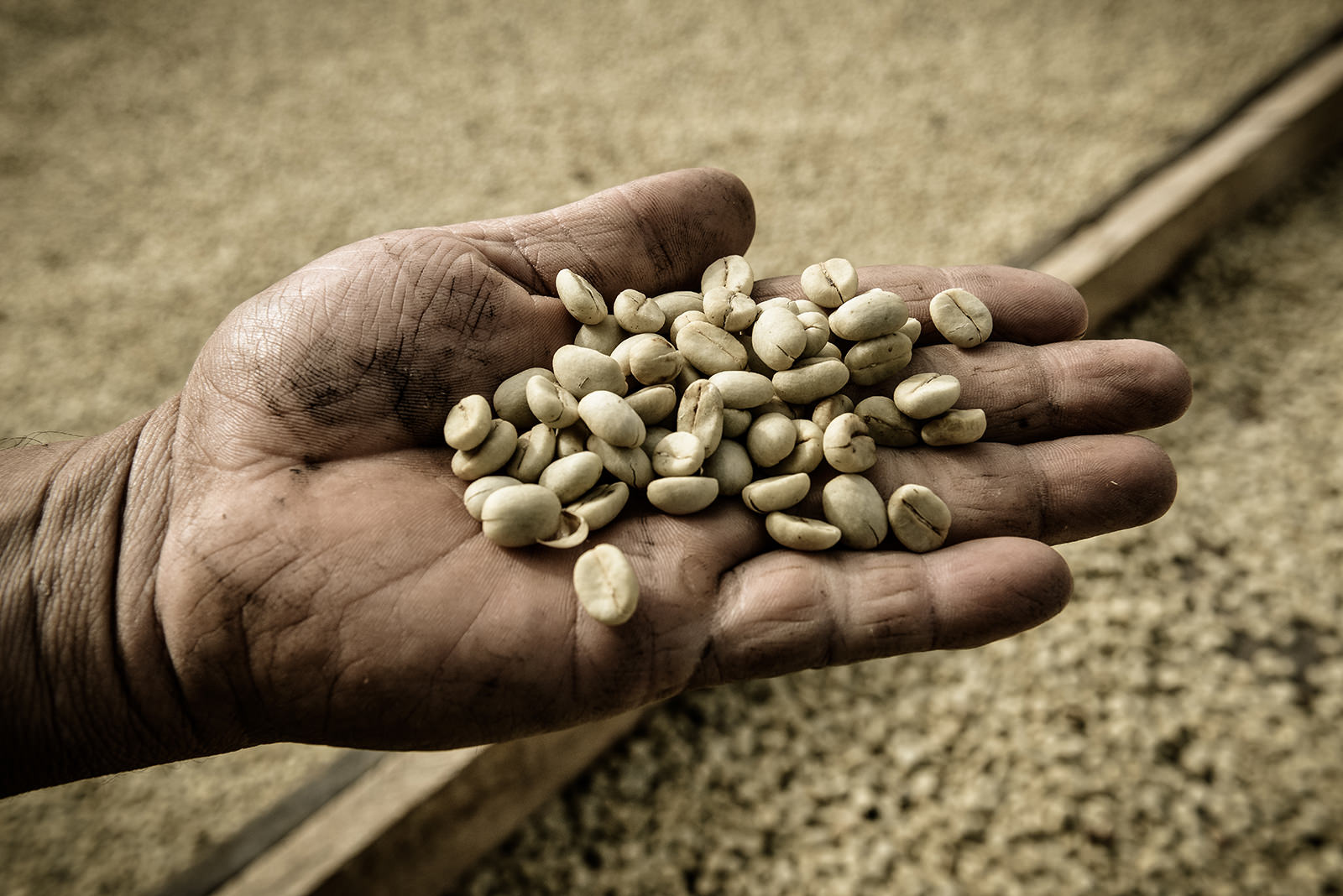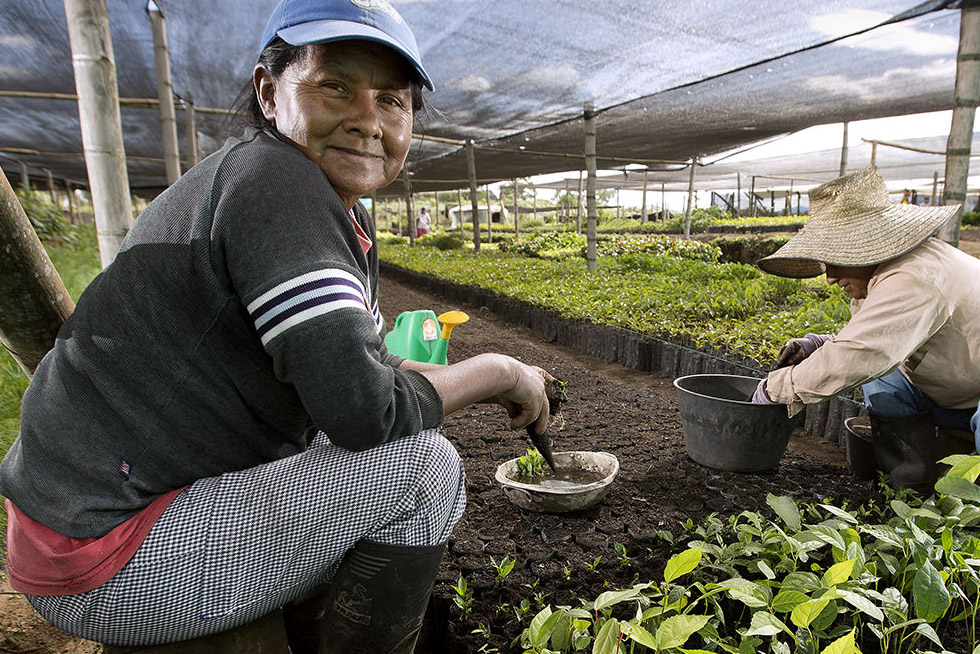Our 2020 Commitments
The Positive Cup program incorporates ambitious goals in the areas of coffee sourcing and social welfare; aluminium sourcing, use and disposal and resilience to climate change.
SPECIFICALLY, BY 2020 NESPRESSO COMMITS TO:
100% SUSTAINABLY SOURCED COFFEE
Nespresso will sustainably source 100% of its permanent Grand Cru range through the Nespresso AAA Sustainable Quality™ Program. We will realise this by significantly expanding the AAA Sustainable Quality™ Program in Ethiopia, Kenya and South Sudan, and investing over CHF 15 million in these countries over six years.
We will also assist farmers in their work achieve high certification standards - for example in water management, biodiversity and fair worker treatment - through our long-term partner Rainforest Alliance (since 2003) and Fairtrade International.
Where have we come from?
The AAA Sustainable Quality™ Program was launched in 2003. By 2004, hundreds of farmers in Costa Rica, Mexico and Colombia joined the program and committed to a method of coffee production that was both sustainable and environmentally friendly. By 2014 this number had swelled to some more than 63,000 farmers across 11 countries, representing more than 80% of our total coffee supply; we are committed to increasing this number.


What will we do?
Our ultimate vision is to source 100% of the permanent Grand Crus range through the AAA Sustainable Quality™ Program. We will achieve this by assisting farmers to attain certification standards through our long-term partners, Rainforest Alliance and Fairtrade, and by significantly expanding the AAA Program in Ethiopia, Kenya and South Sudan. Additionally, we are actively pursuing innovative solutions that increase farmer welfare standards through the AAA Farmer Future program in Colombia, spreading further the positive impact seen to date.
How will we do it?
AAA Sustainable Quality™ Program understands that productivity, quality and sustainability come from transforming farmers’ livelihoods. We will apply AAA Sustainable Quality™ Program to South Sudan’s coffee industry, in a manner that reflects the economy’s unique qualities. We’re also innovating with our partners to improve coffee farming’s social dimensions: pensions, insurance, price volatility and climate change resilience. By 2020, even more of our coffee will meet AAA standards Sustainable Quality™ standards, thanks to more farmers choosing to attain certification.
100% SUSTAINABLY MANAGED ALUMINIUM
We will expand our capacity to collect used aluminium capsules to 100% wherever the company does business, thereby increasing recycling rates. Further to this, each time it makes environmental sense, we will recycle used Nespresso capsules collected by the company, reusing them as new capsules. Another key part of this vision is for 100% of our virgin aluminium capsules to be produced with material compliant with the new Aluminium Stewardship Initiative standard, currently being developed within a multi-stakeholder program led by the IUCN.
Where have we come from?
1991 saw Nespresso launch the world’s first capsule recycling system in Switzerland. By 2013 we had reached 75% global recycling capacity, achieved with the help of some 14,000 dedicated capsule collection points operational around the world
What will we do?
Nespresso will expand capacity to collect used aluminium capsules to 100% in any country where we do business, where we will also seek to increase overall recycling. We will recycle Nespresso capsules collected into new capsules each time it makes environmental sense to do so. Additionally we will source 100% virgin aluminium capsule material, compliant with the new Aluminium Stewardship Initiative standard.

How will we do it?
We are creating an end-to-end loop for the aluminium we use. Innovation is key to this, helping us create the most efficient and convenient collection systems possible. Collaboration is vital, too: Nespresso is constantly working with local partners to provide innovative solutions. We’re also playing a key role in establishing the Aluminium Stewardship Initiative.
100% CARBON “INSETTING”*
Nespresso’s vision is to further reduce the company’s carbon footprint by 10%. In addition, we aim to become 100% carbon neutral. We plan to inset our residual operational carbon footprint and increase farm climate resilience through an extensive agroforestry programme.
* Definition of insetting: unlike “offsetting”, traditional carbon compensation where compensation takes place in a different location using uncorrelated actors and technical activities, “insetting” integrates socio-environmental commitments into the heart of the companies’ business activities and networks.
What have we already achieved?
Between 2009 and 2013 we reduced the carbon footprint of each cup of Nespresso by 20%. We have achieved this in two ways: introducing energy-efficient machines, and piloting the Rainforest Alliance climate module at farm level.
What will we do?
Reduce Nespresso’s overall carbon footprint by a further 10%. By insetting our residual operational carbon footprint we will ultimately become a 100% carbon-neutral company. This extends to our farms, too, whose climate resilience we will help increase through extensive agroforestry.

How will we do it?
Managing our own operational carbon footprint gives us greater opportunities to drive energy efficiencies and carbon savings, particularly in our manufacturing and logistics outputs. We’re also using agroforestry to inset Nespresso’s footprint. Furthermore, we’re exploring ways that Club Members can opt in to contribute to net-positive carbon consumption.